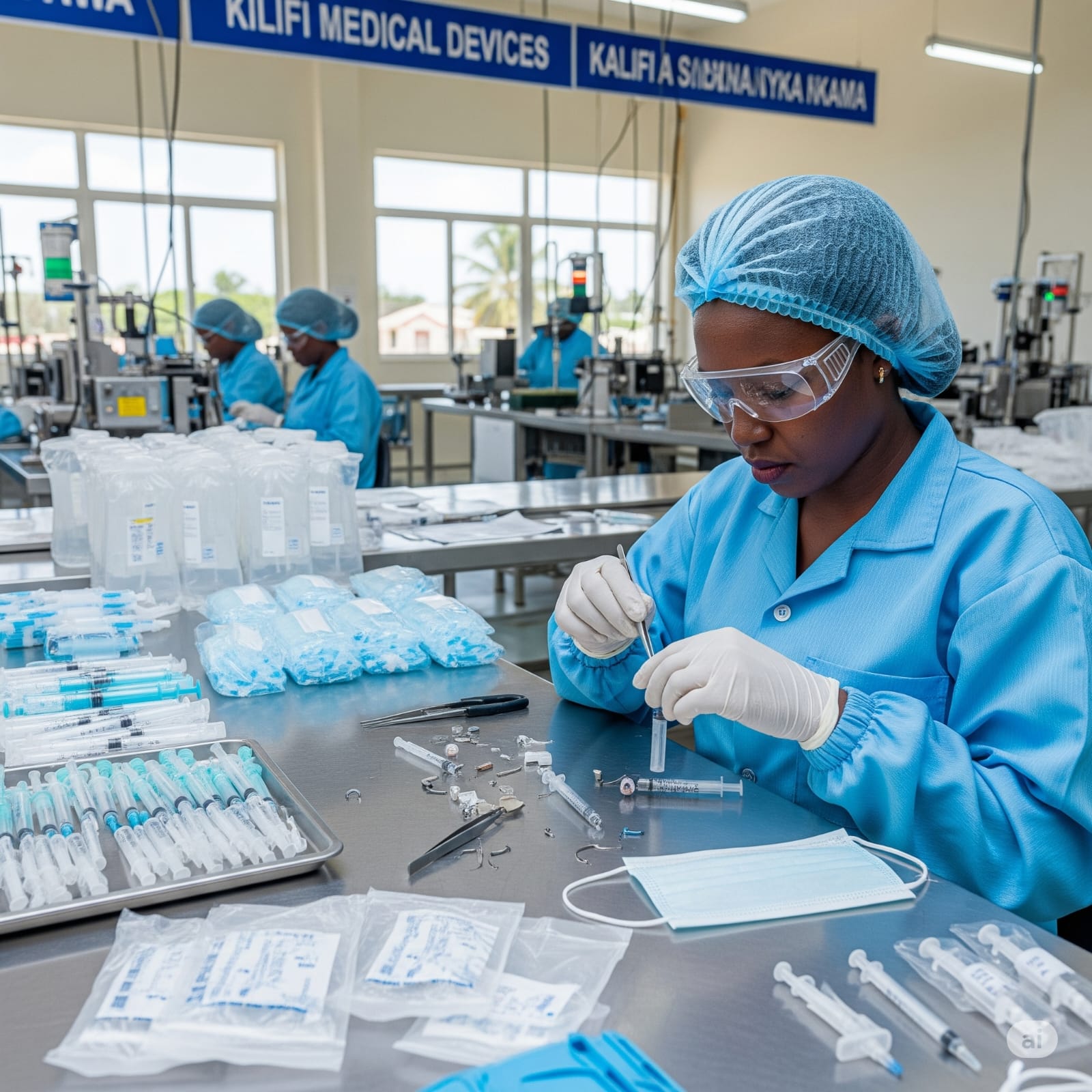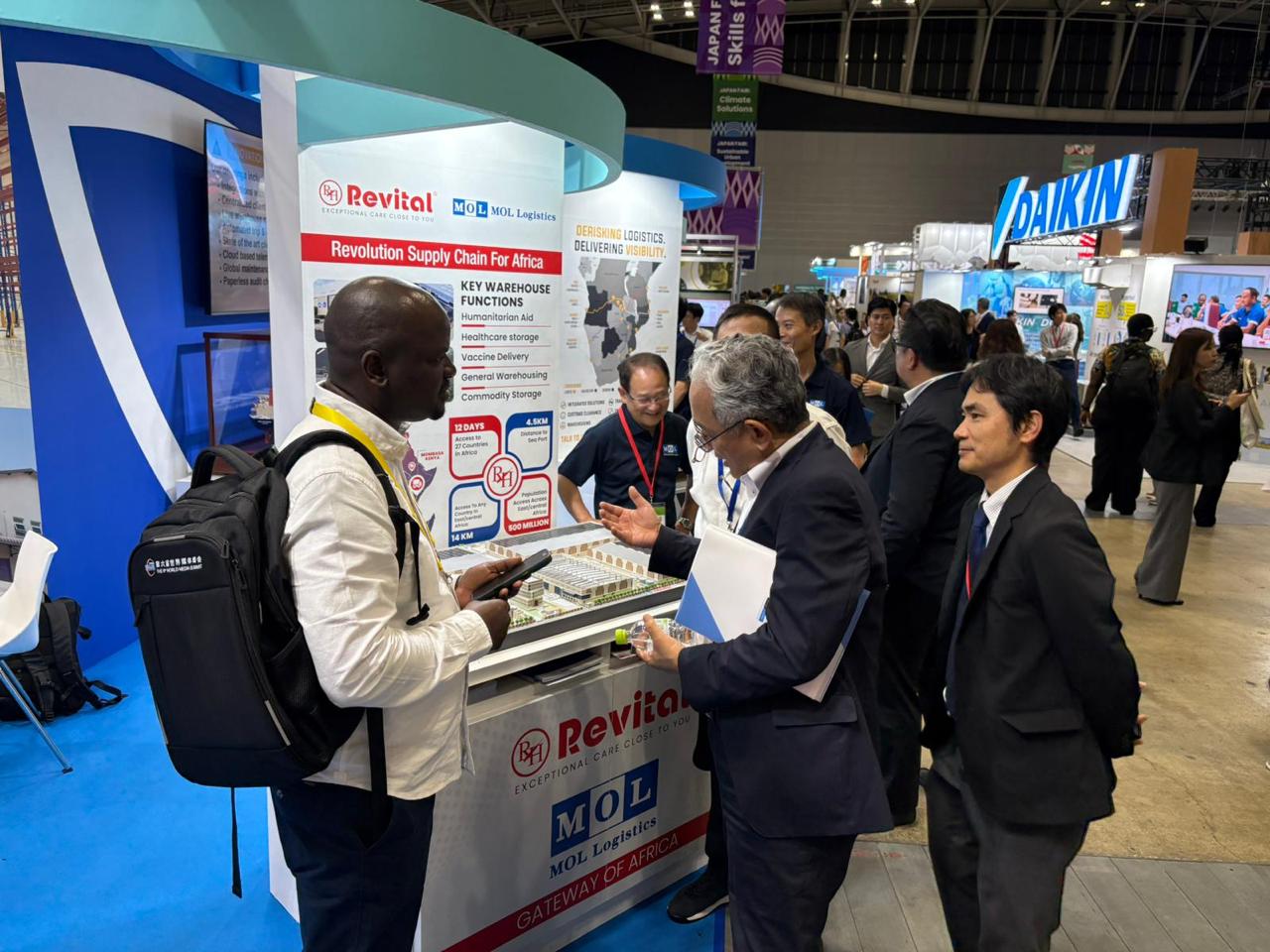

One morning, Rajin Vora received unusual visitors. A group of women approached him, their faces etched with worry.
They came to complain about their husbands, who mysteriously vanished every month when payday arrived.
“They go for days and only return when their money is finished,” one woman lamented.
Vora listened intently, his heart heavy with empathy.
This encounter ignited a fire within him, prompting a decision that would change the course of many lives.
From that day forward, Vora resolved to hire more women in his fledgling business, Revital, a small enterprise he had just launched to manufacture syringes in Kilifi.
Eighteen years later, he stands proud as the head of a company with 700 employees, 80% of whom are women. In a region where economic struggle often leads to despair, Vora's initiative transformed not just individual lives, but entire families and communities throughout Kilifi. Vora's journey began with humble roots.
He had never attended university, but with Ksh 70,000 given to him by his father, he embarked on a mission to carve a niche in the medical industry.
“I’m a firm believer in hard work and perseverance. This is my 46th year in business. It’s been a long journey, and we are grateful to God,” he shared during our meeting on the sidelines of TICAD 9 in Yokohama, Japan, where he was exhibiting Revital. Rajin's story is one of grit and determination.
The youngest of five siblings, he initially worked as a small-time distributor of fast-moving consumer goods in Mombasa.

However, he was driven by a dream that extended beyond mere survival—he aspired to make a difference in the medical field. In 2008, amidst the chaos of the post-election violence that gripped Kenya, he decided to take a leap of faith.
“All these multinational companies underpay you and make you work for them. I got tired and decided to work for myself. That’s how Revital was born,” he recalled.
His first products were a mere two types of syringes, but they symbolised the beginning of a remarkable journey.
The audacity to start a business during such tumultuous times was nothing short of extraordinary. Banks were reluctant to lend money to startups like his, yet Vora’s vision propelled him forward.
Over the years, Revital blossomed into one of Africa's largest manufacturers of medical disposable products, boasting a portfolio of 48 medical devices and exporting to over 28 countries worldwide.
His success story is not merely one of financial gain; it is about the lives he has touched.
Vora's company supplies medical devices to numerous government agencies and non-governmental organisations, ensuring that Revital continues to save millions of lives globally.
Each day, as the sun rises over Kilifi, the factory hums with activity, a testament to the hard work and dedication of its employees.
During my visit to Revital’s stand at the TICAD conference, I was captivated by Vora's latest partnership with MOL Logistics, one of Japan's largest shipping companies.
They are collaborating to create the biggest logistics hub in East and Central Africa.
Vora's ambition to expand beyond Kenya is evident.
“We are looking to become a pan-African company headquartered in Kenya,” he explained, his eyes shining with determination.
With plans to ease supply chains into Europe and the U.S, Revital has also opened an office in Morocco, aiming to replicate its successful model.
Koichi Yashima, chairman of MOL, expressed confidence in the partnership, stating, “It’s the ambition of this company that has attracted us. We have no doubt that together we will co-invest in this new venture and grow the business even more.”
The expected investment of at least Sh3 billion from MOL marks a significant milestone in Revital's journey. But what truly sets Vora apart is not just his business acumen; it’s his deep-rooted commitment to his community.
The women who once came to him with their troubles now find employment and empowerment within his factory walls.
They are no longer dependent on husbands who disappear; they are breadwinners, contributing to their families and shaping a better future for their children.





![[PHOTOS] Security intensified as Gachagua's supporters flock JKIA](/_next/image?url=https%3A%2F%2Fcdn.radioafrica.digital%2Fimage%2F2025%2F08%2Febbe30ce-2f64-44c7-bd47-4fb9a7669b18.jpg&w=3840&q=100)





![[PHOTOS] Leaders await Gachagua's arrival at JKIA](/_next/image?url=https%3A%2F%2Fcdn.radioafrica.digital%2Fimage%2F2025%2F08%2F24dd41c3-06c2-4ed4-808c-c144ceb8f198.jpg&w=3840&q=100)
